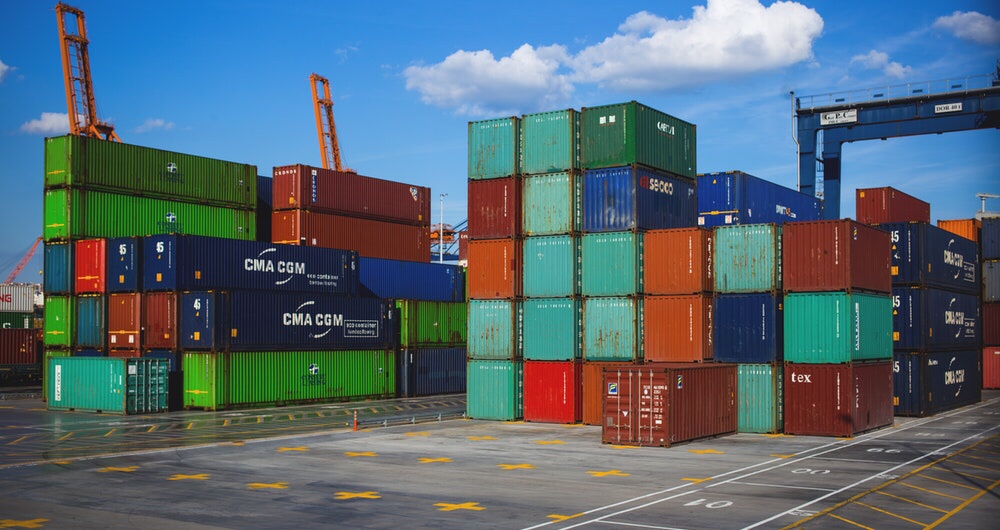The world has become a global village. That has given rise to an increased trade among companies across countries. Globalization has thrown open the world markets to everybody who has something to offer to the word. International trade is a big growth opportunity. Exports are becoming increasingly important to companies looking for opportunities to grow their businesses. Some information regarding export is provided here. However, you may need much more information and guidance which can be available from other sources or the subject matter experts.
Why Export?
• Exporting helps in increasing sales and profits.
• It enhances our credibility in domestic market.
• With newer markets, it reduces dependence on sales from the domestic market alone.
• It protects fluctuation in sales due to the cyclic changes.
• It enables better utilization of the production capacity.
• It improves the cost competitiveness of the company due to increased sales and better utilization.
Selecting the Markets
Target markets for exports should be selected after a careful consideration of various factors. Some of them are:
• Political situation, embargo
• Scope of our product
• Market size, stability of demand and growth prospects
• Protection or preferential treatment to local manufacturers
• Competition scenario
• Transport challenges, distribution infrastructure
• Language issues
• Tariff and non-tariff barriers
We should collect adequate market information before selecting one or more target markets for exports.
Registration for Exports
• Every country has different registration requirements for issuing exports license.
• There may be different agencies under which registration may be needed for availing benefits or concessions under the export-import policy.
• We must check the applicable procedure and get ourselves registered.
Finding Buyers
First of all, we must make sure whether there is any restriction regarding exporting our products to any country or not. We can find overseas buyers from many sources.
• Internet search, web based directories and portals
• Trade Directories and Yellow Pages
• Embassies, Consulates and Trade Representatives of various countries stationed in our country
• International Trade Fairs and Exhibitions
• International trade development authorities
• Foreign chambers of commerce
• Advertising in overseas editions of newspapers and magazines etc.
• Embassies, Consulates etc. of other countries and taking note of addresses of importers for products proposed to be exported
• Visiting foreign markets to establish personal rapport with overseas buyers
• Participation in buyer-seller meets and meeting the members of foreign delegation invited by export promotion bodies in our country
• Our contacts in foreign countries
Selecting Channels of Distribution
The following channels of distribution are generally utilized while exporting to overseas markets:
• Export through export consortia (A group of exporters)
• Export through canalizing agencies (Exporting specific products)
• Export through established merchant exporters or export trading houses
• Direct exports
• Export through overseas sales agents
Export Contract
Export is a high value transaction. It is necessary to clarify every term in advance for the successful implementation of this transaction. In order to avoid disputes, it is necessary to enter into an export contract with the overseas buyer. This export contract should be carefully drafted, preferably with the help of a qualified lawyer, incorporating comprehensive but in precise terms, all relevant and important conditions of the deal. It should clarify:
• The exact standards and specifications of the goods
• Quantity
• Export price
• Total value of the contract
• Terms of payment: Amount, mode of payment and currency
• Terms of usage, licenses and permits
• Insurance
• Documentary requirements
• Type of packaging, labeling and marking
• Guarantee, warranties
• Port of shipment
• Delivery terms and schedule
• Taxes, duties and charges payable at exporting country and payable in the importing country
• Force Majeure or Excuse for Non-performance of Contract
• Remedies
• Arbitration
Risks in International trade
Exporting exposes our company to different types of risks. Here are listed four such possible risks and suggestions for precautions to be taken against them:
• Credit risk: This is a risk of not getting the payment. We can insist upon an irrevocable letter of credit (LC) from our foreign buyer. Alternatively, we can acquire an Export Credit Insurance policy, which protects us from such a risk.
• Country risk: A risk of non-payment due to political or other problems in the customer’s country. This risk can also be covered by an Export Credit Insurance policy.
• Currency risk: A possible loss due to an adverse fluctuation in the foreign exchange rate. We can obtain forward cover from our bank authorized to deal in the foreign exchange. Alternatively, we should obtain the export order in our local currency.
• Carriage risk: A possible loss of cargo in transit. It can be covered by taking a marine insurance policy from the general insurance companies.
International Freight Forwarders
Freight forwarders act as a very important link in the export business. They help the exporter in the following ways:
• Acting as an agent on behalf of the exporter in moving the export cargo to the buyer destination.
• Help the exporter in following the import rules and regulations of the buying country.
• Help in choosing the method of shipping and in documentation for the same.
• Fulfilling the government’s export regulations.
• Assisting the exporter in calculating total cost by giving an estimate of the cost of exporting (freight costs, port charges, consular fees, documentation cost, insurance costs and their handling fees).
• Recommend preferred packaging and labeling for the export goods.
In short, from the start to end, the freight forwarders can provide a crucial support to the exporting organization.
Export Documentation
Export requires significant amount of documentation. The freight forwarders should be able to help us in documentation. Some commonly used export documents are listed here. However, the actual documents required in our particular export case, may depend upon the requirements of the governments of both the countries, ours and the buyer’s.
• Commercial invoice
• Certificate of origin
• Bill of lading
• Export packing list
• Consular invoice
• Inspection certification
• Dock receipt and warehouse receipt
• Insurance certificate
• Export license
Guidelines for Export Documentation
• Accuracy of the export documentation is a must. The smallest errors may cause delay or cancellation of the export, loss of payment to the exporter or even seizure of the export goods by customs authorities at either end.
• Payment related documents have validity days and may become invalid after that period. Banks may not honor them after the expiry of the validity period.
• Freight forwarders or our export agents may prepare these documents for us, but we must ensure their accuracy because it is our responsibility and we will have to pay the price for lapses, if any.
• We must make sure that the documents required by the destination government are provided by us. Embassies and consulates of the importing country can also provide us information about the import regulations in their country.
Export Packing
Exported goods travel a long distance through different modes of transportation. In order to ensure that the goods reach the destination in proper condition, packaging of export goods must be given proper attention.
• We should seek packing specifications, requirements and preferences from our buyers.
• The packaging must protect the goods against breakage, moisture, theft, pilferage etc.
• The freight forwarders and marine insurance companies can guide us about packaging.
• Alternatively, a professional packing agency can be hired to pack the shipment for export.
• The transportation costs vary based on size and weight, so we must make sure that the packaging material chosen occupies minimum size, is light-weight and still provides intended strength and proper protection.
Labeling
Packages carrying export cargo must follow guidelines regarding marking and labeling. The marks and labels serve the following purposes:
• Identify the country of origin, weight, size etc.
• Handling signs or Labels for hazardous materials.
• Cautionary signs (e.g. “Glass with care”, “This Side Up” or “Use No Hooks”)
We must get the additional specifications from our foreign buyer regarding labeling requirements, if there are any. The labels must be properly readable. We may take the help of the freight forwarder or an export packaging specialist for this purpose.
Marine Insurance
To safeguard our export cargo against loss, damage and delays, it must be insured by a cargo or marine insurance. Depending upon the terms and conditions of the contract, either the buyer or the seller may have to arrange for such insurance. Our freight forwarders may be able to guide us in this. It is in the interest of the exporter to ensure that goods are properly insured, because damage to the cargo may cause a major financial loss to the exporter.
Shipping
The shipping of export consignments involves multiple agencies and multiple modes of transport, starting from the exporter’s location to the final destination. While deciding the method of international shipping, we must consider the cost of shipping, delivery schedule and the location of the foreign buyer. Freight forwarders can help the exporter in international shipping.
(Expert advice to GROW your business wherever you are, whenever you want.
SMEBusinessGuide.com… https://goo.gl/E3pfoQ)
WHAT YOU CAN READ NEXT
NEXT POST:

General Guidelines For Export





